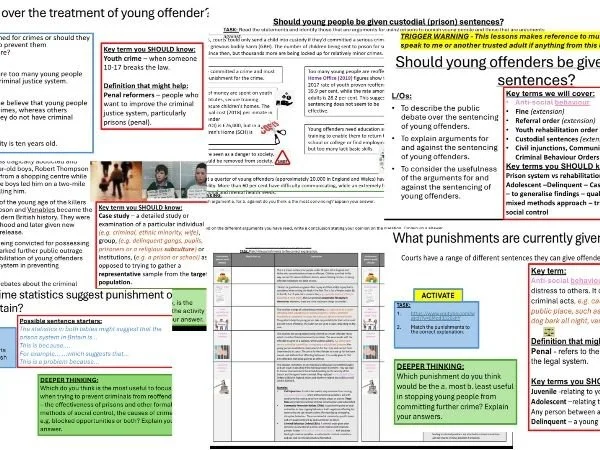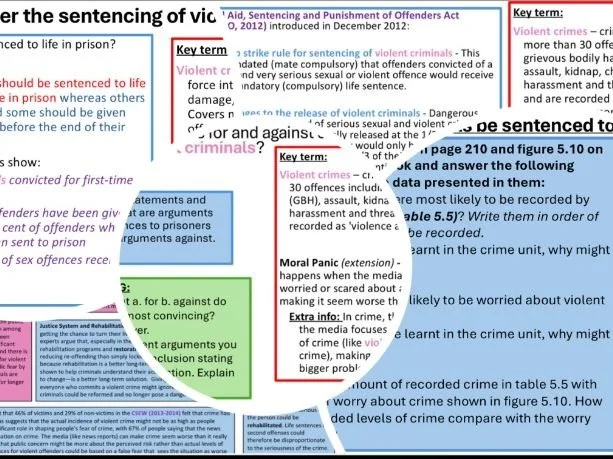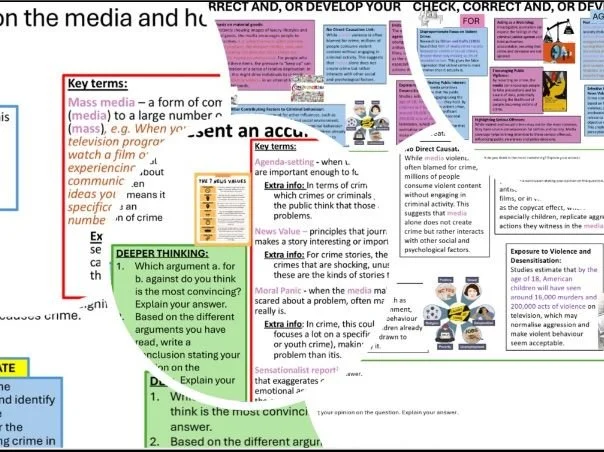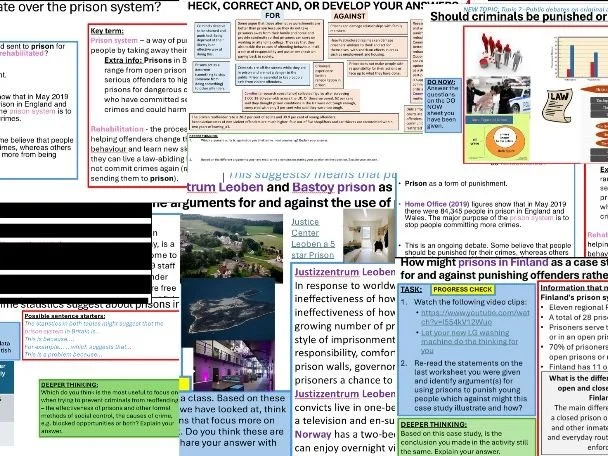 Image 1 of 2
Image 1 of 2

 Image 2 of 2
Image 2 of 2



AQA GCSE Sociology: Crime - Debates (treatment of young offenders)
Detailed lesson with lots of scaffolding based on adaptive teaching that help students understand the public debate over the sentencing of young offenders.
Cover the following key terms:
Anti-social behaviour
Fine (extension)
Referral order (extension)
Youth rehabilitation order (extension)
Custodial sentences (extension)
Civil injunctions, Community Protection Notices (CPNs) and Criminal Behaviour Orders (CBOs) (extension)
Covers the following sociologists/Organisations: James Bulger, Home Office 2019,Ministry of Justice in 2018
Key terms you should know: Prison system vs rehabilitation - Youth crime - Juvenile - Adolescent –Delinquent – Case study – Representative sample – to generalise findings – qualitative vs quantitative methods – mixed methods approach – triangulation – Formal vs informal social control.
Resources can be found at the end of PPTKey term and definition sheet for the lesson included
Covers the debate ‘Should young people be punished for crimes or should they be treated in a way designed to prevent them recommitting crime in the future?’
ANSWERS TO MAIN ACTIVITIES INCLUDED
Includes 4 marker research methods (case studies) exam question linked to the question.
Detailed scaffolding included to help students with their answers.
Detailed lesson with lots of scaffolding based on adaptive teaching that help students understand the public debate over the sentencing of young offenders.
Cover the following key terms:
Anti-social behaviour
Fine (extension)
Referral order (extension)
Youth rehabilitation order (extension)
Custodial sentences (extension)
Civil injunctions, Community Protection Notices (CPNs) and Criminal Behaviour Orders (CBOs) (extension)
Covers the following sociologists/Organisations: James Bulger, Home Office 2019,Ministry of Justice in 2018
Key terms you should know: Prison system vs rehabilitation - Youth crime - Juvenile - Adolescent –Delinquent – Case study – Representative sample – to generalise findings – qualitative vs quantitative methods – mixed methods approach – triangulation – Formal vs informal social control.
Resources can be found at the end of PPTKey term and definition sheet for the lesson included
Covers the debate ‘Should young people be punished for crimes or should they be treated in a way designed to prevent them recommitting crime in the future?’
ANSWERS TO MAIN ACTIVITIES INCLUDED
Includes 4 marker research methods (case studies) exam question linked to the question.
Detailed scaffolding included to help students with their answers.






